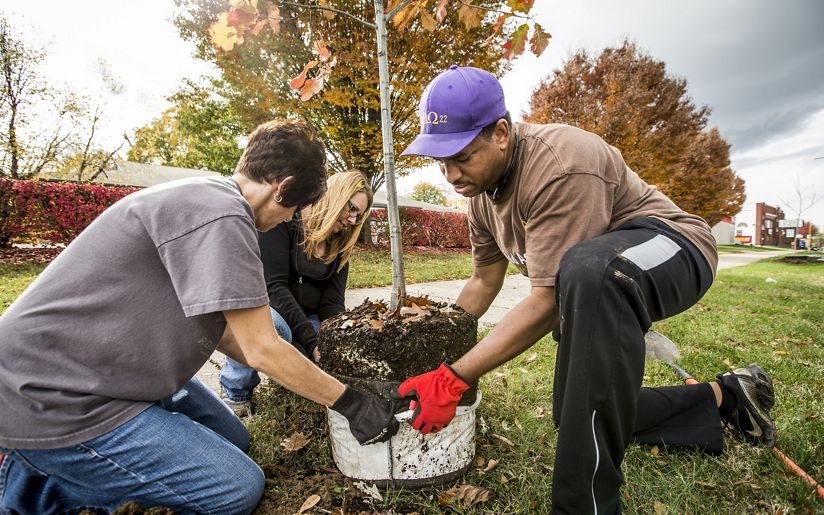- About
- Topics
- Story
- In-Depth
- Picks
- Opinion
- News
- Donate
- Signup for our newsletterOur Editors' Best Picks.Send
Read, Debate: Engage.
| February 05, 2016 | |
|---|---|
| topic: | Innovation |
| tags: | #bicycle, #Sustainable Development, #World Bicycle Relief |
| located: | USA |
| by: | Itai Lahat |
Bikes are everywhere. The cycling culture made a huge comeback to mainstream urban transportation in the last decade. And with good reasons. If you want to avoid standing in traffic, if you want to be fitter and healthier, if you want to be more environmental, bicycle is the best choice.
The boom in peddling power brought with it some surprising benefits. Bike lanes pushed car traffic away from the uncontested status it had before. With more space to ride, and more people riding, came more research. Stanford University was the one who found out that cyclists arrive at work less stressed and return home more relaxed than their car driving co-workers. Other worldwide research suggests a multitude of health benefits for city bikers and even real estate developers realized that streets with bike lanes add substantial monetary value to properties.
But while the west is reconfiguring its urban infrastructure and life style, it’s a whole different cycling story in the developing world. Bicycle in poor countries can save life, increase dramatically economic output and create educational opportunities like never before.
One organization that is making cycling a reality in poor Africa is World Bicycle Relief. In 1987, at 23, FK Day cofounded what would become one of the largest bicycle parts companies in the world, SRAM. Last year, they had over $500 million in revenue.
In 2005, he began building his next venture: a social enterprise that sells (and gives) bicycles to folks in Africa. In 5 years, he estimates, they could be looking at giving and selling, collectively, 1,000,000 bicycles on the continent.
Unlike other philanthropists, Day wants to make World Bicycle Relief, the non-profit, completely self- sustainable. What does that mean? “There’s no reason we should have to be fundraising in the future,” he said last November in an interview to Forbes. He wants the for-profit arm, or the social enterprise, to finance World Bicycle Relief’s non-profit projects.
Simple, sustainable bicycle transportation multiplies an individual's efficiency. Compared to walking, bikes improve access to education, healthcare and economic opportunity. They increase carrying capacity and accessible travel distance while decreasing the time it takes to commute to schools, clinics and markets.
A few years ago Frederick K. Day told the New York times the story of Abel, a scrawny and malnourished 17-year-old, who would rise at 4 o’clock each morning and set off barefoot on a three-hour hike to high school. Abels life changed completely when he got a bicycle from World Bicycle Relief. It made the difference between finishing high school and failing the exams. According to the organization, Student attendance who get the bike increases by up to 28% and grades increase by up to 59%. But not only students benefit. Healthcare workers reach 40% more patients more often, Entrepreneurs travel 4 times further, carrying 5 times more goods, increasing profits by up to 50%.
Be as it may, Frederick K. Day will is admirable, but still poses huge challenges. One of the main ones is the cost of the traditional bicycle. But now an Israeli inventor is providing a solution that can revolutionize production.
inventor Izhar Gafni built a bicycle made almost entirely out of cardboard. Using the principles of Japanese origami -- literally folding cardboard over and over (with a machine he invented) -- and adding a secret concoction of glue and varnish, Izzy, who is self-taught, figured out a way to make cardboard rugged enough for us to ride. His craftsmanship resulted in a light, waterproof and recyclable frame capable of holding cyclists up to 220 kilos. A full-size cardboard bike weighs around nine kilos, and according to Izzy, never has to be adjusted or repaired.
The end result: a bicycle made from $9 worth of cardboard, that will sell for around $60. But Izzy hopes the rebates for using "green" materials will enable them to distribute the bicycles for free in poor countries all over the world. We would like to see him join forces with World Bicycle Relief in creating a real game changer for millions of people together.
Read more on World Bicycle Relief on FairPlanet here or donate to the project here.
Read more on Cardboard Bicycles on their own platform.
By copying the embed code below, you agree to adhere to our republishing guidelines.
